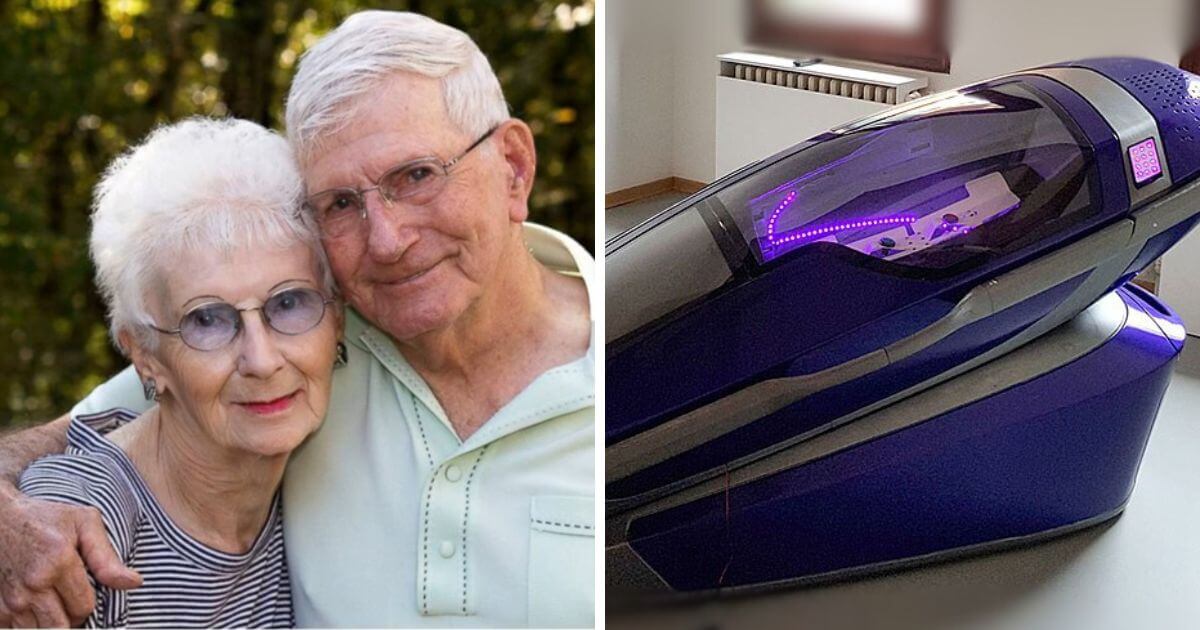Two pensioners who do not believe they would receive prompt NHS treatment are looking to become the first couple to make use of a controversial double ‘suicide pod’ to end their lives.
Christine Scott, 80, who is suffering from vascular dementia, and her husband Peter, 86, have signed up with Swiss-based ‘The Last Resort’, an assisted suicide group which enables people to use a ‘Sarco machine’. The machine, which comes in the shape of a capsule, was created by Dr Philip Nitschke, the founder of euthanasia campaign group Exit International and nicknamed “Dr Death” by the media.
The couple stated their intention to die together because of their infirmity and ‘physical decline’, as well as their lack of confidence in the NHS. Peter Scott said: “The chances of getting prompt NHS treatment for the ailments of old age seem pretty remote so you end up trapped by infirmity and pain”.
“’The idea of watching the slow degradation of Chris’ mental abilities in parallel to my own physical decline is horrific to me”.
Peter said he “would not want to go on living without” Christine and the couple are planning to use the as-yet untried double suicide ‘Sarco Machine’.
In an interview with SWI swissinfo.ch given in 2021, Nitschke said “It’s a 3-D printed capsule, activated from the inside by the person intending to die. The machine can be towed anywhere for the death”.
“The person will get into the capsule and lie down… They will be asked a number of questions and when they have answered, they may press the button inside the capsule activating the mechanism in their own time”.
Dogged By Controversy
However, the use of the ‘Sarco machine’ has been dogged by controversy. Just last month, prosecutors in Switzerland banned its use because they were concerned not only about the legality of its use in the country, but also potential ethical issues surrounding its implementation.
While Nitschke suggests that death would take 5-10 minutes, physicians from countries that have already made assisted suicide and euthanasia legal tell a different story. Dr Brick Lantz, orthopaedic surgeon and state director of the American Academy of Medical Ethics, emphasised that it is not uncommon for an assisted suicide to go wrong.
“The failures are brutal when someone fails assisted suicide and the failures are not infrequent. In fact, there was one that woke up from a coma after multiple days. There was a nurse at the bedside of one who ended up putting a plastic bag over the patient to kill the patient because they weren’t dying”, he said.
Dr Lantz also pointed out that the safeguards in Oregon that are intended to protect the vulnerable do not work. “The safeguards in Oregon are not being followed. That includes the psychiatric referral, second opinion and the 6 month time estimate for death”, he said.
The Scotts’ case comes as Health and Social Care Secretary Wes Streeting shared his concerns that assisted suicide laws could lead to people “being coerced”. He said: “Candidly, when I think about this question of being a burden, I do not think that palliative care, end-of-life care in this country is in a condition yet where we are giving people the freedom to choose, without being coerced by the lack of support available”.
Streeting added that he is currently “not sure we have the right end-of-life care available to enable a real choice on assisted dying”.
Spokesperson for Right To Life UK, Catherine Robinson, said “Peter and Christine Scott are seemingly in a lot of pain and their quest for assisted suicide is clearly driven by a kind of despair. However, Nitschke’s suicide machine is not the answer”.
“Rather than focusing on introducing assisted suicide laws, we should be focused on improving the provision of high-quality care for those at the end of their lives”.












